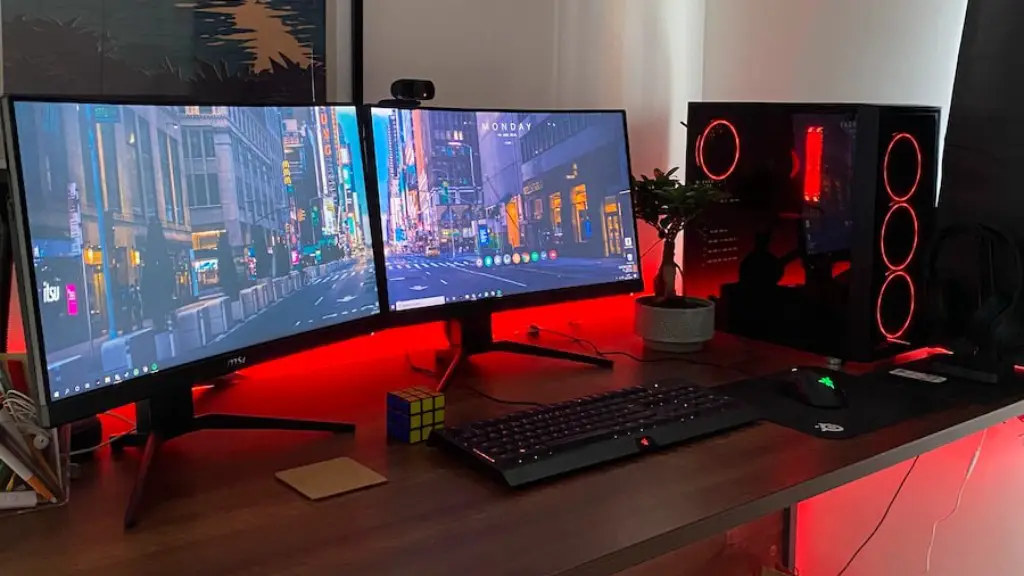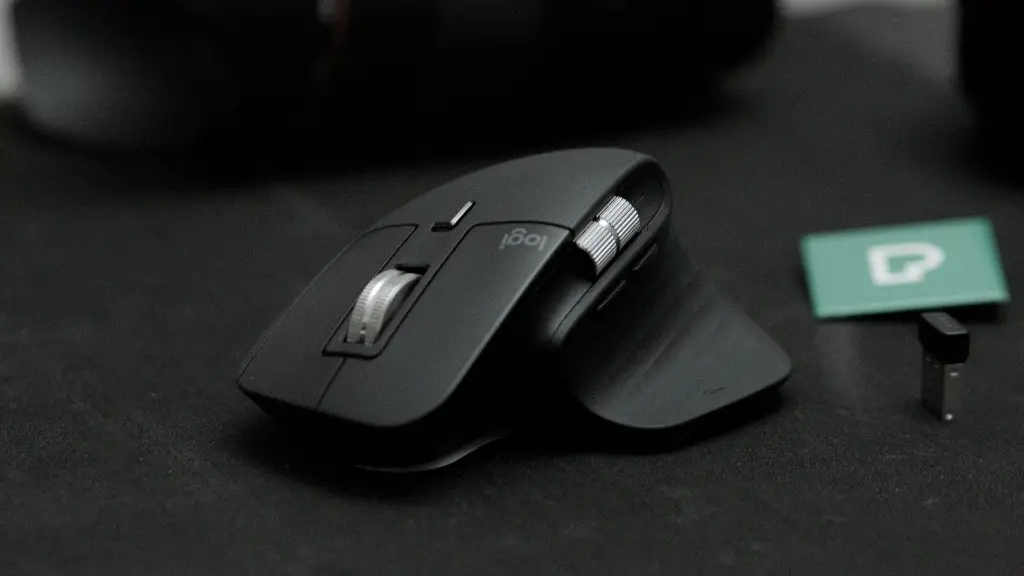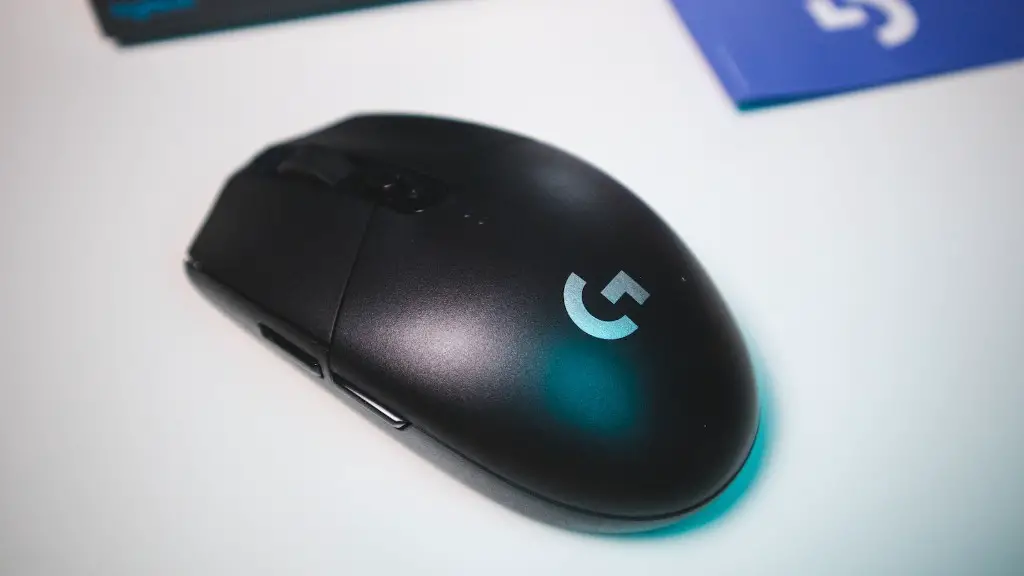Choosing whether to leave your gaming PC on or off can feel like a difficult decision. On one hand, keeping your PC on means you won’t have to wait for it to startup every time you want to play, however, on the other, leaving it on for extended periods of time can increase energy costs and can lead to hardware wear and tear. Ultimately, it’s important to strike a balance and decide what’s best for your gaming needs.
It’s generally best to turn your gaming PC off when it’s not in use. Although the convenience of leaving your PC on is undeniable, leaving it on 24/7 can drastically increase power bills and add unnecessary wear and tear to your system. Moreover, if your PC is running 24/7, it is also vulnerable to malicious attack and at risk of viruses and malware. A good way to remedy this is to enable and use System Restore, so that if ransomware or a malicious attack hits, you can restore your system to a healthy version.
It’s important to consider the type of gaming you do before deciding whether to leave your gaming PC on or off. If you’re a heavy gamer, leaving your PC on can make sense so that games don’t take long to load, updates are more likely to take place and automatic cloud backups can occur. Additionally, leaving your PC on can be a good solution for those with multiple users, as each user should have their own gaming profile and leaving the PC on ensures that this is maintained.
When it comes to energy usage, the model and age of your gaming PC should be considered. Modern gaming PCs are more energy-efficient than older models, and energy-efficient PCs may consume less power overall if left on for extended periods of time. On the other hand, an older PC may be better left off as it is likely to consume more electricity.
Overall, leaving your gaming PC on or off depends on your particular needs and requirements. If you’re a sporadic gamer who only plays occasionally, it might be best to turn your PC off when you’re not playing to save energy and cost. On the other hand, if you’re a heavy gamer and don’t mind the higher monthly electricity bills, leaving your PC on may be the best choice to maintain optimum performance.
How to Improve the Quality of Your Gaming PC
Improving the quality of your gaming PC is important if you want to have the best gaming experience possible. There are a number of ways you can go about doing this, such as updating the operating system, downloading anti-virus programs and cleaning the components.
The most important way to improve your gaming PC is to update the operating system. Many updates patch known security vulnerabilities, ensuring a smoother and more secure gaming experience. Additionally, new features and capabilities may also be added, depending on your operating system. On Windows, you should use Microsoft Update or one of the automatic updating options, while Mac users should regularly check for new updates in the Mac Update app.
Using an anti-virus can also be beneficial for your gaming PC. An anti-virus is designed to protect your PC from viruses and malware, which can interrupt gaming and cause performance issues. Some antiviruses are free, while others are more advanced and require a fee. Either way, it’s important to choose one that’s reliable and has a good reputation.
Cleaning the components of your gaming PC is critical for maintaining quality performance. Dust and debris can quickly build up in and around fans, cooling modules and power supplies, resulting in poor performance and a loud fan noise. Regularly cleaning these components can extend the life of your gaming PC and help you get the most out of it.
Finally, consider upgrading your RAM, graphics card and other components if needed. RAM upgrades help prevent freezing and lagging, allowing games to run better, while upgraded graphics cards improve graphics performance, allowing you to enjoy the beautiful visuals of games at higher resolutions. While you may not need a top-of-the-line model, investing in some upgrades can make a huge difference, especially if you’ve been using the same gaming PC for a while.
How to Reduce Noise from Your Gaming PC
One of the most common problems with gaming PCs is noise. Fans, power supplies and other components can often be quite loud, making it difficult to enjoy your gaming experience. Fortunately, there are a few simple steps you can take to reduce the noise and help keep your gaming PC running quietly.
The first step is to check the fan speeds of your PC components. If your fans are running at higher speeds than necessary, they will generate more noise. Of course, the fan speeds need to be high enough to keep your PC running at a sufficient temperature, but they should not be too loud. Check the fan settings in your BIOS, and adjust the speed if necessary.
Another way to reduce noise is to invest in quality components. Quality components tend to be quieter, as they often have better cooling systems and quieter motors. Additionally, it’s important to make sure your cables are properly routed and secured to reduce noise from vibrations. Finally, a good case can also help reduce noise, as it will provide extra insulation, preventing noise from escaping the case.
Finally, you can also invest in soundproofing materials to further reduce noise from your gaming PC. Foam panels, acoustic foam tiles and other materials are readily available to help reduce noise. Additionally, if you want an even more comprehensive solution, you can invest in a soundproof case, which can help contain noise and ensure your gaming PC runs as quietly as possible.
Is it Better to Turn Off or Sleep Your PC?
When it comes to deciding whether to turn off or sleep your gaming PC, there are a few factors to consider. Generally speaking, it’s better to put your PC in sleep mode, as it consumes less energy and will still be ready to use when you need it.
When in sleep mode, a gaming PC will still use some power to maintain its active state. However, it’s substantially less than what it would use if you left it turned on. Additionally, a gaming PC in sleep mode will generally start up faster than one that’s been turned off, so you won’t have to wait for long.
It’s important to note, however, that leaving a gaming PC in sleep mode for long periods of time can still wear components down, so it’s best to power down your gaming PC if it won’t be used for extended periods of time.
If you choose to turn off your gaming PC, make sure to properly shut it down by pressing the power button. This allows the operating system to cleanly shut down any services or applications that may be running in the background. Additionally, it’s important to unplug the power cord and remove any external components before turning off your PC. This helps prevent power surges and keeps your components safe.
How to Keep Your PC Safe from Viruses and Malware
Keeping your gaming PC safe from viruses and malware is essential for a good gaming experience. Fortunately, there are a few simple steps you can take to protect your PC from malicious threats.
The most important thing you can do is to install and regularly update an anti-virus program. Anti-virus programs are designed to detect and remove malicious threats, such as viruses and malware. Additionally, some anti-viruses also offer protection against ransomware and other malicious attacks.
It’s also important to be careful when opening emails and downloading files. Make sure to only open emails from trusted sources, and be wary of any suspicious-looking files. Additionally, avoid downloading files from untrusted websites, as these could be malicious.
Finally, make sure to keep your operating system up to date. Many operating systems regularly release patches and updates that fix known security vulnerabilities. Thus, it’s important to regularly check for new updates and install them, as these can help keep your PC safe.
What are the Benefits of Overclocking?
Overclocking is the process of increasing the speed of a computer’s components beyond the manufacturer’s intended specifications. It can be a great way to improve your gaming experience, as it can increase the speed and performance of your GPU, CPU and other components.
One of the main benefits of overclocking is increased performance. By overclocking your components, you can increase the speed and performance of your gaming PC, resulting in smoother and faster gaming. Additionally, overclocking can help reduce latency, resulting in better responsiveness and improved gameplay.
Overclocking can also help reduce temperatures and power consumption. When done properly, overclocking can reduce temperatures by increasing the amount of air passing through components, resulting in better cooling. Additionally, overclocking can also reduce power consumption, as the components require less power to maintain the same speeds.
Finally, overclocking can be useful for reducing noise. Higher fan speeds generate more noise, so overclocking can help reduce the fan speeds, resulting in decreased fan noise. It’s important to note, however, that there is a tradeoff, as reducing fan speeds results in higher temperatures.
Overall, overclocking can be a great way to improve your gaming experience, as it can increase performance, reduce latency, reduce temperatures and reduce power consumption. It’s important to note, however, that overclocking can be a dangerous process and should only be done by those with experience.


